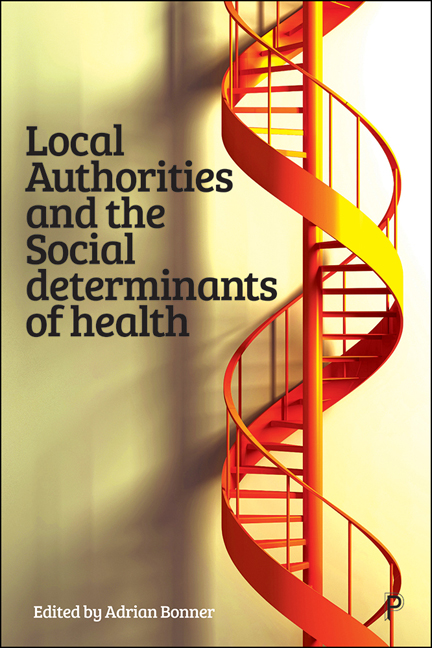Book contents
- Frontmatter
- Dedication
- Contents
- List of Figures, Tables and Boxes
- Notes on Contributors
- Acknowledgements
- Foreword
- Summary
- Introduction: Key Sociopolitical Changes Affecting the Health and Wellbeing of People
- Part I Health, Social Care and Community Wellbeing
- Part II The Role of Local Authorities in Promoting Health and Wellbeing in the Community
- Part III Local Authority Commissioning
- Part IV The Third Sector
- Part V Socio-Economic Political Perspectives
- Conclusion
- Appendix: COVID-19 Timeline
- Index
Introduction
Published online by Cambridge University Press: 25 March 2021
- Frontmatter
- Dedication
- Contents
- List of Figures, Tables and Boxes
- Notes on Contributors
- Acknowledgements
- Foreword
- Summary
- Introduction: Key Sociopolitical Changes Affecting the Health and Wellbeing of People
- Part I Health, Social Care and Community Wellbeing
- Part II The Role of Local Authorities in Promoting Health and Wellbeing in the Community
- Part III Local Authority Commissioning
- Part IV The Third Sector
- Part V Socio-Economic Political Perspectives
- Conclusion
- Appendix: COVID-19 Timeline
- Index
Summary
Devolution and local empowerment
If the objective is to empower everyone, regardless of who they are or what their income is, then it is essential to bring decision-making closer to citizens through devolution and decentralisation. But that has been undermined by a decade of austerity since 2010, severely cutting local government budgets. The fad for ‘neoliberal’ economics – that is to say, favouring market forces wherever possible and tolerating state regulation and public investment only where absolutely necessary – has meant getting government as small as possible and out of the way to leave space for a free market free-for-all.
In schools, for example, instead of empowering parents, teachers and school governors within a framework of strong resource support for and enforcement of minimum standards by local and national government, to ensure equal opportunities for all, the aim has been to ‘free’ schools to compete in a contrived marketplace – while teachers are required to work to more centrally determined frameworks than ever before.
In parallel came former Prime Minister David Cameron's concept of ‘the Big Society’. But that became little more than a soon-forgotten ruse to dump responsibility for providing community services onto a voluntary sector itself experiencing a huge capacity collapse driven by government.
Surely, power can only be spread downwards in an equitable manner if there is a national framework where opportunities, resources, wealth and income are distributed as equally as possible, and where democratic rights are constitutionally entrenched?
Surely empowering local communities means establishing high minimum levels of public provision – affordable housing, public transport, social services, nursery schools, care services for the elderly, childcare and so on – and enabling these to be ‘topped up’ by local decisions?
Until now, at least, the incontrovertible advantage of modern Britain has been its 20th-century innovation: the pooling and sharing of risks and resources across the whole of the United Kingdom (UK) to ensure common welfare and decent standards of life for all citizens, regardless of nationality or where you live – common welfare standards first introduced by Liberal governments and subsequently consolidated by Labour governments up until 2010 – ensuring common economic and social standards: common UK-wide old age pensions, common UK social insurance (sick pay,
- Type
- Chapter
- Information
- Local Authorities and the Social Determinants of Health , pp. 343 - 346Publisher: Bristol University PressPrint publication year: 2020

